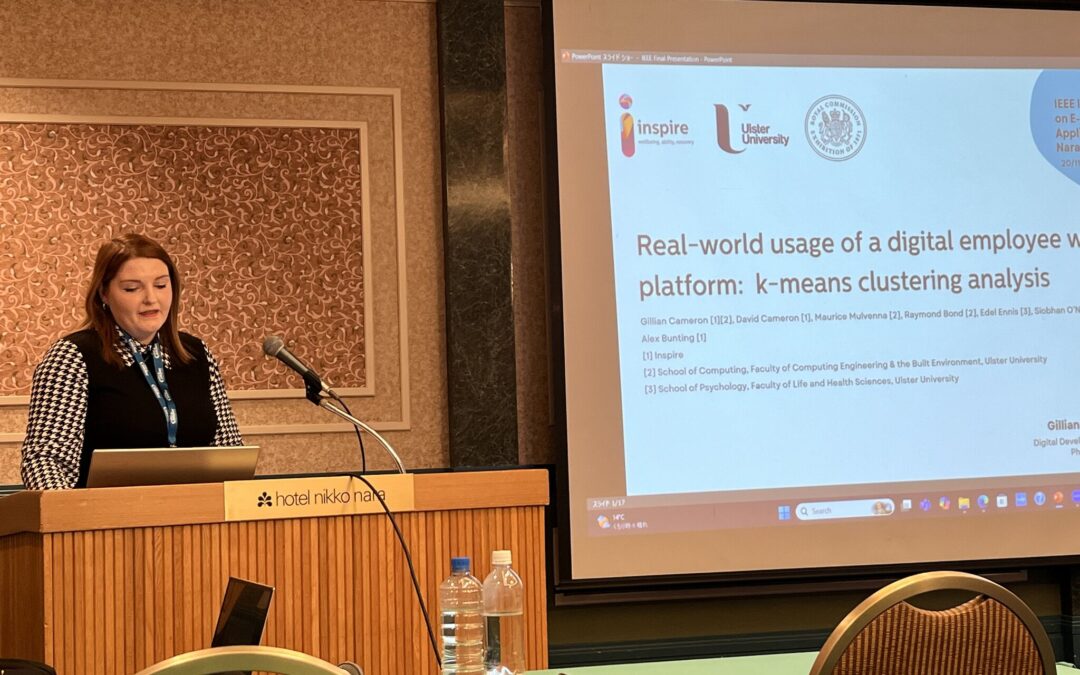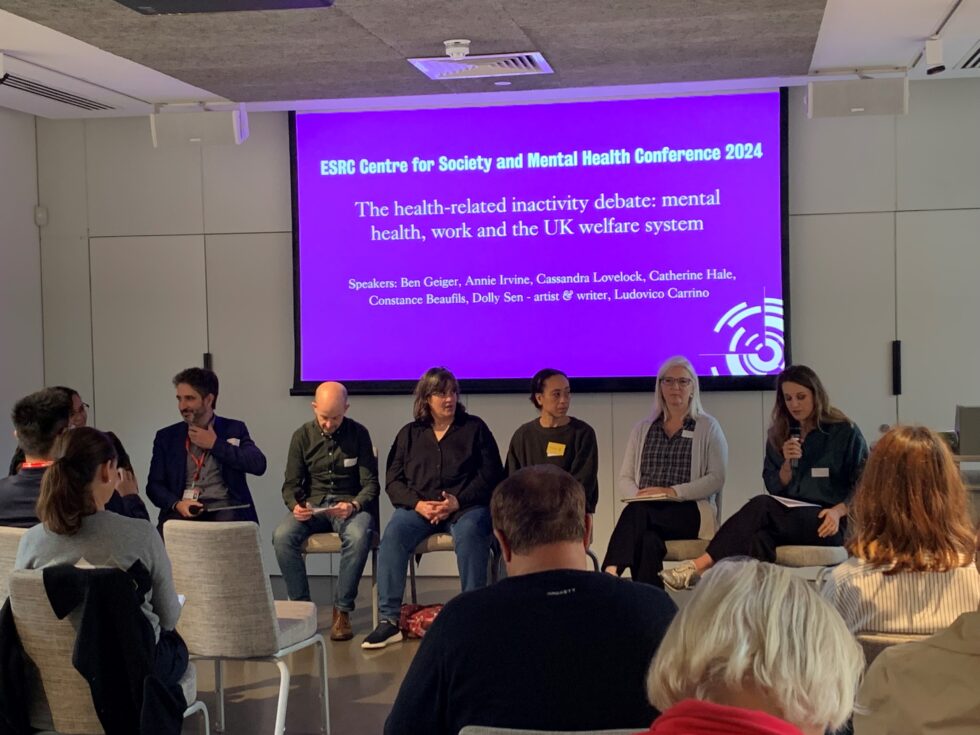Three years after lockdown, the workplace is a very different environment. Fully remote or hybrid working models are the norm in many organisations.
Juggling the demands of an office-based and a remote workforce can be difficult for organisations. Recently, we’ve been contacted by organisations worried about disconnected online team members.
Our Leading Hybrid Teams with Ease course helps managers motivate and engage hybrid workforces. It has a particular focus on protecting the wellbeing of remote workers.
These tips may help if you’re struggling to engage your hybrid teams.
Key to successful hybrid working
Successful hybrid working has to be based on effective communication. Everyone should feel part of the team, regardless of where they’re sat. That means making sure that people
- Can contribute meaningfully to team meetings and events
- Feel connected to their colleagues
- Are acknowledged and rewarded for the work they do
- Feel supported when they’re going through difficult times
- Can keep effective boundaries between their work and home lives
Managing hybrid meetings
Once some team members are onsite, it’s easy to slip back into old ways of communicating, with a focus on in-person meetings.
Team members dialling into these meetings can feel left out and disconnected. Your hybrid meetings can go much more smoothly if you
- Ensure people at home can hear people in the room—ask speakers to sit close to the laptop or invest in microphones
- Use a big screen so that team members at home are visible to those in the room
- Rotate between hybrid meetings where some people are in the room and online meetings where everyone joins from their desk
- Keep checking with your online team members and asking for questions and input
- Regularly ask people how they feel hybrid meetings are going and implement feedback where you can
Improving connections between hybrid teams
Allow your hybrid teams time to goof off and chat. Many remote workers miss the opportunity to have fun with colleagues.
- Encourage staff to schedule in time to relax, chat and catch up with each others’ news
- Consider scheduling online tea-breaks and catch ups—but know that these may seem like ‘organised fun’
- Managers’ presence during online meetups can stymie fun—try reserving these for team members and asking for feedback
- Ask your team what would make them feel more connected, and don’t be defensive about the suggestions
Rewarding and motivating remote workers
Your team should feel trusted, not under suspicion. Good managers focus on outcomes and results, rather than on a person’s visibility or availability.
Your team members may feel more motivated and appreciated if
- You take their preferences onboard when asking how much contact time they want or need
- You notice the work they’ve done and thank them for it
- You highlight and reward their achievements
Supporting remote workers through difficult times
It can be difficult for managers to know how to best support someone going through a difficult time. It’s even harder when that person is working from home. Home-working setups can magnify your worries about intruding on someone’s privacy.
Remote workers can struggle with loneliness and motivation after trauma, loss or illness. They may feel isolated, unsupported and pressured to get back to normal.
You can support remote workers who have been through tough times by
- Finding out what they need and want from you, especially regarding what is shared with colleagues
- Letting them know what support is available—check your employee assistance programme
- Relaxing your expectations and removing some of the person’s responsibilities while they recover
- Keeping an eye on how they’re doing and looking for signs of distress—your first concern should be their wellbeing and not their output
Inspire provides training to help managers and team members cope with grief and loss.
Respecting boundaries for remote workers
Not everyone who works from home has the luxury of a home office. You may work from your kitchen, bedroom or living room.
Letting colleagues see the private spaces of your home life is a lot to ask. Some people will be reluctant to turn cameras on in meetings. For others, the lack of a defined workspace can blur the boundaries between work and home. They may feel as though they’re permanently on-call.
You can help to reinforce the boundary between work and home life by
- Talking privately to team members who don’t turn their cameras on—find out why this is
- Checking in with colleagues who appear to be working outside core work hours
- Developing agile or hybrid working policies that explain your approach to remote work
- Checking in with team members to see how they’re doing and focusing these conversations on wellbeing, not performance
The right support for your team
Whether it’s helping managers lead hybrid teams, supporting team members at difficult points in their lives or helping your organisation come up with a wellbeing strategy that works for remote workers, Inspire can help.
Contact your account manager or Tanya Neeson, our Business Development Executive to discuss your needs.
More from our blog
Menopause and work
The menopause is a natural biological process. It occurs when your ovaries age and naturally produce lower levels of reproductive hormones. The menopause may have a significant impact on home life and work performance. This can be unsettling, particularly if a particular role carries lots of responsibility. The hormonal changes…
Understanding Stepped Care and its role in workplace wellbeing
The stepped care model is a fundamental part of Inspire's workplace offering. So, what is it and why is it so important?
Winter wellbeing 2024
The festive season is here and we’re keen to highlight some wellbeing tips for now and the New Year. Head into 2025 in the best possible frame of mind. Switch off Technology allows us to be constantly connected to colleagues, family and friends. That is often a good thing but…
Reflections on IEEE eHealthCom 2024: Insights, Innovation, and Inspiration in Nara, Japan
Inspire’s Digital Development Lead, Gillian Cameron, reflects on her recent trip to Nara, Japan for the IEEE eHealthCom conference. Last week, I had the privilege of attending and presenting at the IEEE eHealthCom 2024 conference in Nara, Japan. This annual event brings together researchers, industry leaders, and policymakers to discuss…
Mental Health on the Agenda at King’s College London
Inspire’s Policy & Campaigns Office, Matthew Coyle, reflects on his recent trip to King’s College London and the knowledge gained at the ESRC Centre for Society and Mental Health’s annual conference. I had the privilege earlier this month of attending the ESRC Centre for Society and Mental Health’s third annual conference in…
Healthy Organisations Commit to Person-Centred Wellbeing
Employment takes up a good deal of our time. According to the Office of National Statistics, the average UK worker spends over 36 hours in work every week; in Ireland, that figure is 38.5. On World Mental Health Day, understand the effect that wellbeing washing can have on workers and…
On World Mental Health Day, Here’s How to Avoid Wellbeing Washing
As we count down to World Mental Health Day on 10th October, Inspire’s focus is very much on our ‘Don’t Wellbeing Wash’ campaign. Wellbeing washing is similar to green washing, its arguably more infamous cousin. It describes a company or organisational ethos that focus more on the illusion of staff…
World Mental Health Day: Don’t Wellbeing Wash
World Mental Health Day (WMHD), which takes place every year on 10th October, offers us all an opportunity to gather and talk about mental health, demonstrating to everyone that this is a subject worthy of open, honest discussion and explanation. In 2024, Inspire is marking WMHD by highlighting the important issue…
Government Action on Work-Life Balance a Positive Sign
The UK Government has announced plans to introduce new codes of practice for businesses, which are aimed at tackling burnout and codifying a right to switch off. This follows on from Labour’s campaign pledge to empower workers, providing them with the freedom to disconnect from their jobs outside regular hours and…
Line Managers are Key to Workplace Wellbeing
According to new research published by Queen’s University Belfast and the University of Nottingham, strong links exist between positive business performance and mental health training for line managers. Furthermore, the analysis of workforce practices suggests that recognising this, and acting on it, could save organisations millions every year. The study…
Workplace Conflicts Require Proactive Approach
Discord between colleagues is not unusual. The average workplace brings together individuals from different walks of life, people with distinct characteristics, objectives, points of view and ways of doing things. Quarrels are bound to develop from time to time. They can, however, have a significant impact on an organisation’s productivity,…
CIPD Conference Stresses Authentic, Empathetic Leadership
Inspire\'s Noelle Higgins, Business Development Manager – Therapeutic Services reflects on the recent CIPD conference and research. My colleague Jonathan Cody and I recently took the opportunity to head to the CIPD conference at the RDS, enjoying a day away from our e-mails and catching up with a range of…













